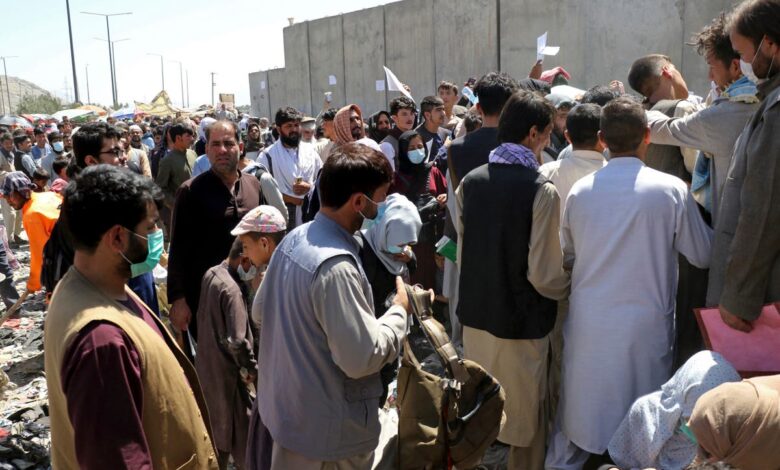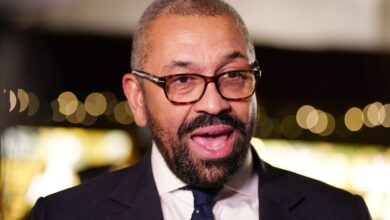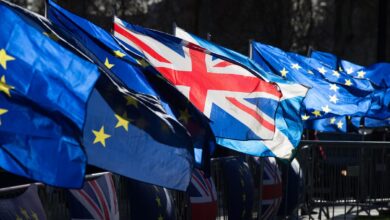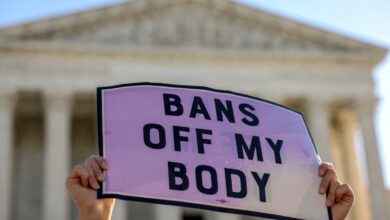‘It has been a sad lesson’: Afghans left behind despite British promise of help

A common reaction to the number of Afghans brought to safety from the Taliban under a much-heralded government resettlement policy is likely to be that several zeroes must be missing.
The Afghan Citizens Resettlement Scheme (ACRS) pledged to help those who “who have assisted the UK efforts in Afghanistan and stood up for values such as democracy, women’s rights, freedom of speech, and rule of law: vulnerable people, including women and girls at risk, and members of minority groups at risk (including ethnic and religious minorities and LGBT+ people)”.
The government pledged to “resettle more than 5,000 people in the first year and up to 20,000 over the coming years” and that “anyone who is resettled through the ACRS will receive indefinite leave to remain (ILR) in the UK, and will be able to apply for British citizenship after five years”.
But four, as The Independent reveals, really is the astonishingly low total of those who have been settled in Britain under the scheme since British and other Western troops left Kabul following its fall to the Taliban.
UK forces, along with officials from the FCDO and other government departments on the ground, evacuated several thousand Afghan civilians amid the chaos and violence at Kabul airport which ended with an Isis suicide bombing massacring 183 people.
But tens of thousands of others, targets of Taliban vengeance, were left stranded facing a fearful time, desperate for sanctuary abroad. Many, we know, were subsequently hunted down and murdered by the Talibs: some were taken away by their gunmen never to be seen again.
Some managed to escape to neighbouring countries, often funding the journey by selling what was left of their possessions and identified as vulnerable refugees by the UNHCR and the UK. Under one of the ‘Gateway’ resettlement paths, they were supposed to have new lives away from fear in this country. That, we now discover, has not taken place.
One of those who fled Afghanistan was Ahmed who worked for the UN, World Bank, and a British company undertaking UK government-contracted projects involving the Afghan administration.
He had refused repeated demands from the senior Talib mullah for money from the infrastructure projects he was working on. Each refusal enraged the mullah more, and he vowed retribution on the angrezzi baccha (“son of the English”), as he called Ahmed.
The Taliban tried to find him after taking Kabul, and during a raid at the family home, shot his 26-year-old wife Rahima. Denied treatment at the hospital by the Talibs she died from her wounds.
Ahmed escaped to Pakistan just ahead of his pursuers. He applied to the UK’s Afghan Relocations and Assistance Policy (ARAP) scheme with the backing of a British company. He received a reply from the Foreign, Commonwealth and Development Office (FCDO), saying his application had been received and that “we will endeavour to respond to you as quickly as possible” and then heard nothing for weeks.
He told The Independent in January this year: “I think every day about what the Taliban did to my poor wife, how she must have suffered. I had to leave my country through a hole in the fence into Pakistan. I had no choice; the mullah who wanted to kill me is a very powerful man now. My trouble with him comes from the work I was doing with western organisations, British organisations and now I am getting no help from Britain.”
Ahmed was subsequently told he will qualify to come to the UK under the resettlement scheme. He continued to be in Pakistan surviving on his dwindling savings, moving addresses fearful of Taliban reach; waiting to see when his work to “assist the UK efforts in Afghanistan” will provide him with a place of safety in this country.
Ferhana, a 23-year-old student whose family are originally from Gereshk and Lashkar Gar in Helmand, had been involved in education and gender equality projects funded by the British Council in the province and also in Kabul. She and her friends had been outspoken in their criticism of Islamists and conservative clerics, and her family were deeply concerned that she might become a target, with the Talibs takeover of the capital all but inevitable.
Ferhana, two of her friends and a cousin – all women – decided to try to get on an evacuation flight three days after the fall of Kabul, amid fears that the turbulence unfolding at the airport would lead to the airlift coming to an abrupt end. The friends managed to get through, and, after a wait of 36 hours on the road outside the airport, got on planes – one to Germany and the other to the US.
The car carrying Ferhana and her cousin, however, was stopped at a checkpoint operated by the Haqqani network – the Islamist group allied to the Taliban – and was turned back. They missed the last evacuation flight.
Ferhana escaped to Pakistan in February and subsequently registered with the UNHCR. She watched from there while hundreds of Ukrainians fleeing Vladimir Putin’s invasion found refuge in Britain.
Speaking to The Independent, she said: “I am glad that the Ukrainians could get to Britain and are safe. But the British government don’t work very fast to get us to Britain, do they? I didn’t think they would let us down like this, I really didn’t. It has been a sad lesson.”





